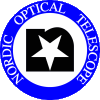
Target-of-Opportunity and Monitoring programs at NOTA class of research projects concerns objects which appear unpredictably and fade rapidly - "Targets of Opportunity" (ToO). A few of these have been judged by the NOT Observing Programs Committee (OPC) to be of sufficiently high scientific merit that they have been awarded "ToO status" at the NOT. This privilege implies that the Principal Investigator (PI) of such a program is authorised, within specified conditions, to contact the observer at the NOT and request that an approved set of observations of a target from the approved list be executed within a delay specified for each program. There are also projects which study objects that require regular, but infrequent `monitoring' observations. Often these require relatively little observing time, but are spread in time such that it is impractical to execute the observations in visitor mode. Observations for these kinds of programs are scheduled on specific dates, and visiting astronomers might be asked to participate in the execution of these programs, where you will be informed in advance of this is the case. When approving these type of programs, the NOT Council fully realised that such interruptions are made at the expense of other valuable, approved scientific projects. The criteria for approval of especially ToO programs are therefore particularly strict. The hope is that, in this way, we may enable Nordic teams to carry out some truly unique science justifying the inconvenience to others. Progress will be closely monitored to ensure that this remains the case. Note that any observing program affected by ToO or Monitoring observations are offered full compensation of the observing time lost in service mode. This also applies in case an observer in Spanish time accepts to do ToO observations for a program approved for Nordic time (see "Current ToO and Monitoring programs" linked below). Specific observations can be requested through our Fast-Track Service Program, which we then will execute in service mode during Nordic service nights. A full list of all ToO and Monitoring programs in order of priority can be found here:
NB: During period 72, no ToO override is permitted during the time-critical observations for program P72-303 (see the telescope schedule for specific dates and times). If you execute any of the Target-of-Opportunity or Monitoring programs, you are required to fill out a ToO/Mon Report form linked from the list of programs. This must be done before filling out the End-Of-Night report.
Rules for Target-of-Opportunity programs at the NOTThe relationships between the NOT Observer, the PI, and the NOT staff are defined by the following rules:
If you have any further questions concerning the programs, please contact NOT staff or the PI's. |
||
|